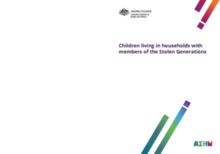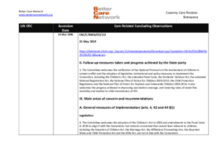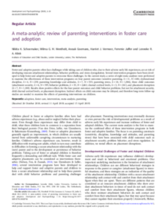Displaying 201 - 210 of 660
This report presents analyses of selected outcomes for Aboriginal and Torres Strait Islander children who live in households with members of the Stolen Generations.
This article examines how the Hague Convention on the Protection of Children and Co‐operation in Respect of Intercountry Adoption (Hague Adoption Convention) plays a central role in justifying the institution of legal adoption.
There is little Australian research on the factors that influence decisions to adopt children from out‐of‐home care. This paper presents a mixed methods study that was conducted to address this gap.
A study carried out in Italy based on a sample group of young immigrants (N = 168) and intercountry adoptees (N = 160) tests a model in which social (perceived discrimination) and family factors (parental autonomy support) predict psychological well-being.
This country care review includes the care-related Concluding Observations adopted by the Committee on the Rights of the Child.
This paper considers the importance of material objects for looked after and adopted children integrated as part of life story work practices.
This paper used the latest judgment documents from the court as a new data source, and identified the key nodes and trafficking paths by using a series of network indicators to enhance the public’s understanding of the crime mechanism of child trafficking.
Written from a multidisciplinary and international perspective, this article outlines the place of adoption in the child protection system, as well as its core elements of permanence and stability.
This chapter from the Handbook of Population reviews demographic research focusing on the adoption of children.
In the current study, a series of eight meta-analyses were performed to examine the effectiveness of intervention programs to help foster and adoptive parents to overcome challenges on four parent outcomes, three child outcomes, and placement disruption.



